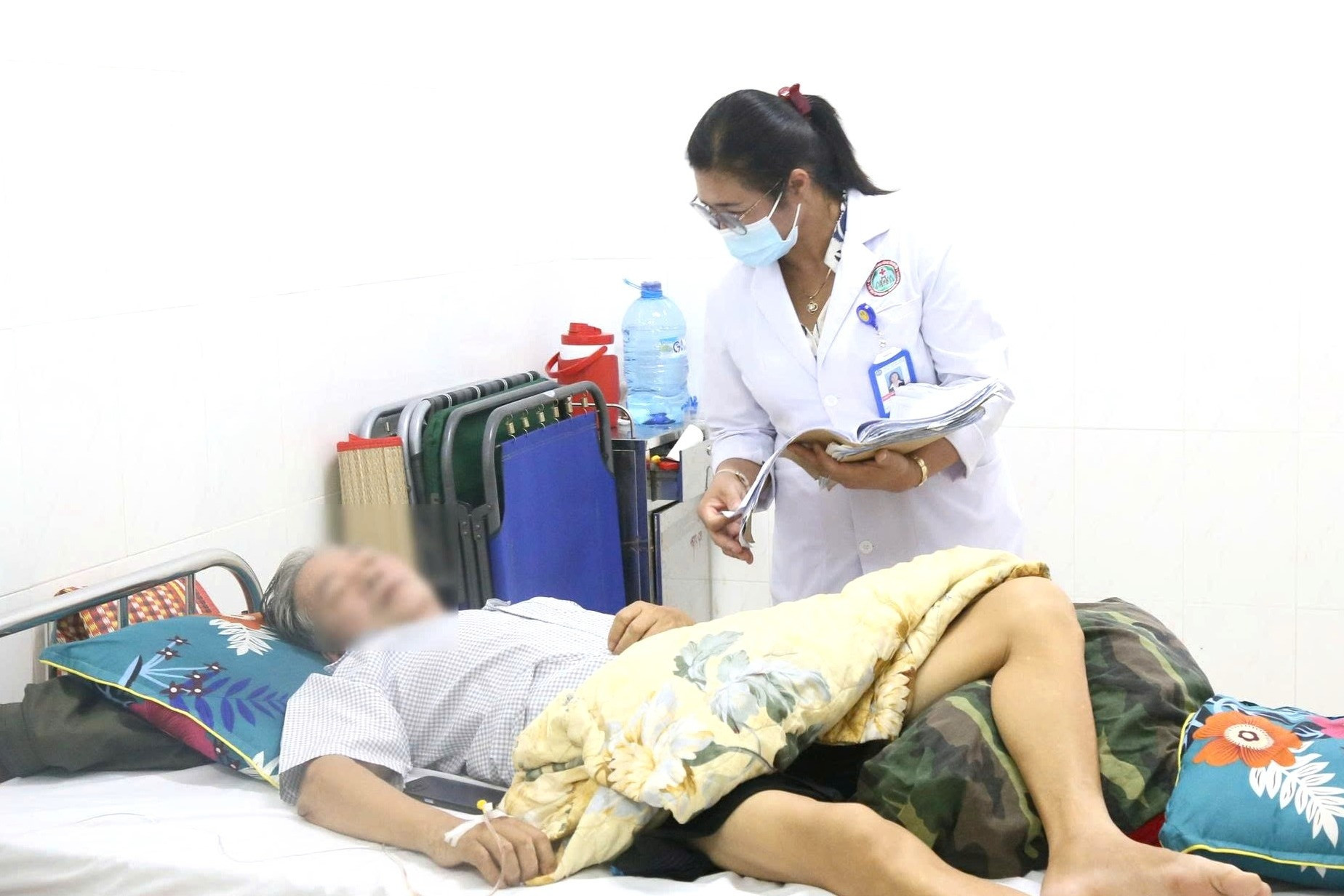
On July 10, the Dak Lak Department of Health confirmed two cases of Whitmore disease, caused by the dangerous Burkholderia pseudomallei bacterium - commonly dubbed the “flesh-eating” bacteria for its ability to cause severe tissue damage and necrosis.
The first case involves B.I.C., a 54-year-old man from Hiep Doan hamlet, Ea M’roh commune. On June 11, he began experiencing persistent high fever, shortness of breath, and productive cough. Between June 18 and 23, he was treated at Buon Don District Medical Center for multiple complications including acute respiratory failure, pneumonia, type 2 diabetes, acute kidney injury, hip arthritis, angina, and hyperlipidemia.
On June 23, he was transferred to Tay Nguyen General Hospital, where a test on July 2 confirmed Whitmore infection.
The second case, D.L.M., 64, from Quang Dong hamlet, Hoa Son commune, reported symptoms of fever and painful urination on June 14. He was admitted on June 24 with diagnoses including urinary retention due to prostate enlargement and hypertension. He tested positive for Whitmore on June 30.
According to Dr. H'Nuen Hđớk, Acting Head of the Infectious Diseases Department at Tay Nguyen General Hospital, both patients are being treated according to Ministry of Health guidelines and are recovering well. They are expected to be discharged within five days.
Dr. Hoang Nguyen Duy, Deputy Director of the Dak Lak Department of Health, emphasized the high fatality risk of Whitmore, prompting swift action. Medical facilities have been instructed to train staff, distribute diagnostic guidelines, and conduct cross-departmental consultations for suspected cases due to the disease’s complex and varied clinical symptoms.
Hospitals are also directed to stock sufficient medications and medical equipment, improve in-hospital communication with patients and families, and strengthen treatment readiness to reduce mortality.
Epidemiological investigations are being carried out to assess transmission risk, alongside intensified monitoring of suspected cases and potential bacterial vectors.
About Whitmore disease:
Whitmore, or melioidosis, is a severe infectious disease caused by Burkholderia pseudomallei, commonly found in soil and water. It can enter the body through cuts, inhalation, or ingestion, and may lead to rapid tissue necrosis, hence its nickname “flesh-eating bacteria.” It is difficult to diagnose due to its wide range of symptoms and can be fatal if untreated.
Hai Duong